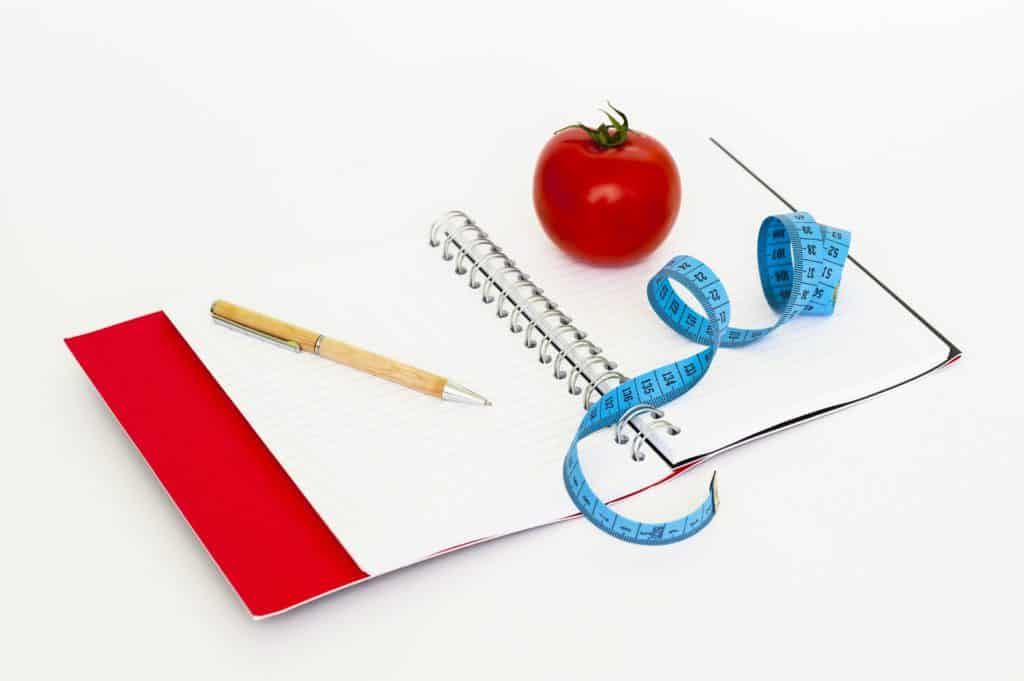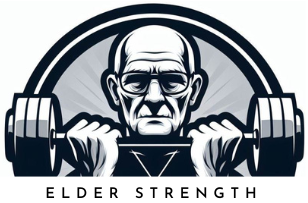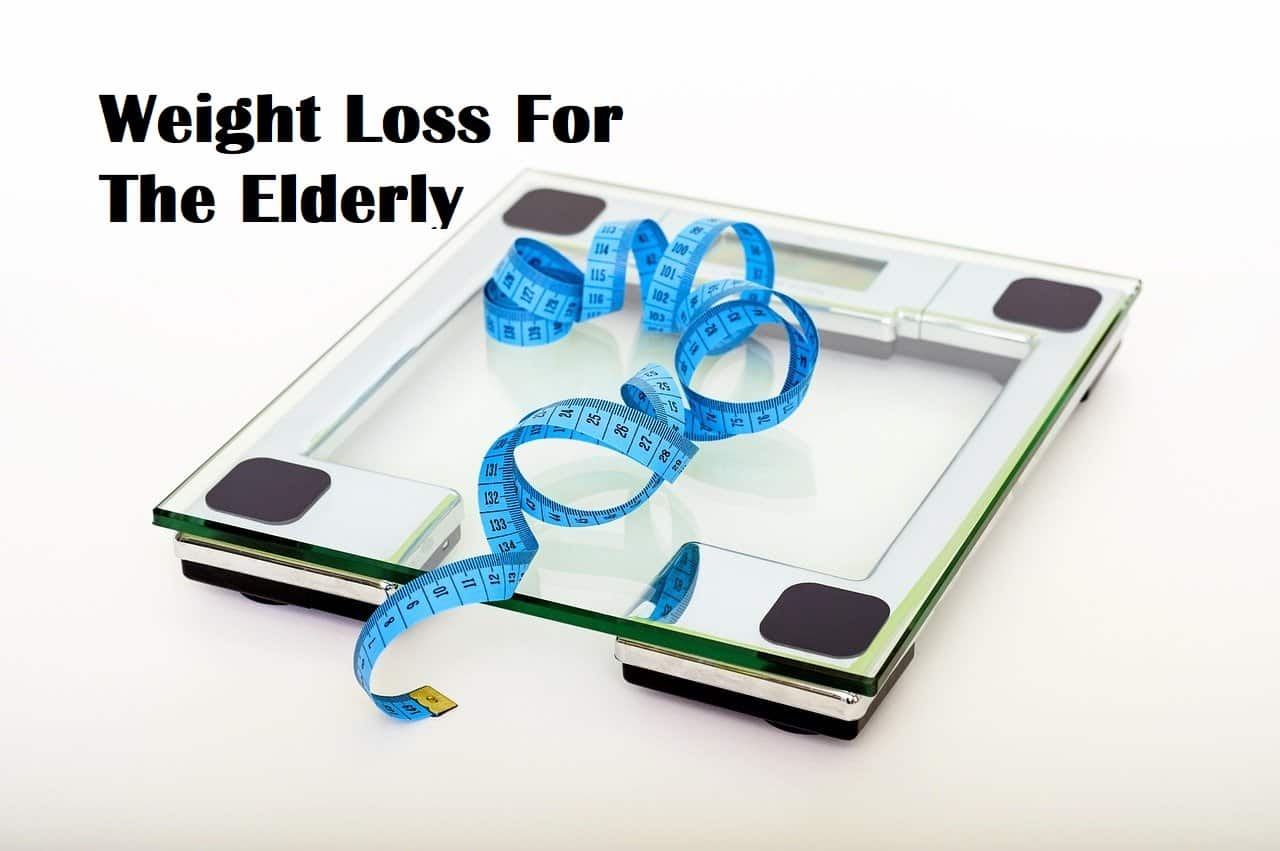In this post, you will learn about weight loss for the elderly. While losing weight is generally very good for your health, this is not always the case for seniors. Read on to find out why!
The plague of the modern-day, obesity. Most of us have too much weight as a result of eating too much and having a sedentary lifestyle.
It’s very easy to gradually pack on the pounds in the modern world where physical work is rare. And high-calorie foods are abundant.
Unfortunately growing older only makes this problem worse. Our metabolism slows down, we become less active and some crucial hormones for fat metabolism start to decline.
There are genetic differences in our tendency to store fat and in our appetites. If you are someone who has had a few extra pounds of fat all their life, weight gain in old age probably doesn’t come as a surprise to you.
On the other hand, if you’ve been blessed with good genes and fast metabolism you probably felt that you could eat anything you wanted without gaining a pound when younger. It might come as a surprise when you start packing on pounds as a senior.
No matter how your weight was younger, the solution for losing weight is the same. Eating less calories than you burn. But is losing weight beneficial or even healthy for the elderly? Let’s look at the facts!
Is Weight Loss Healthy For The Elderly
First off we have to recognize the fact that the elderly can mean a wide range of people. Generally speaking, you can be categorized as senior or elderly after reaching 60.
Now if we take a healthy, active, and strong adult that isn’t retired and still does physical work and has just turned 60. And compare this with an 80-year-old person with disabilities that prevent an active lifestyle. There are certainly differences in their ability and need to lose weight.
The other very important thing to recognize is that its fat mass that matters for health. Your overall weight is determined by your frame, muscle mass, and fat mass. A person with a large frame and a lot of muscle mass will have less fat mass at the same weight than a more petite person of the same height.
A healthy weight is usually determined by the Body Mass Index or BMI. Your optimal body weight is considered to be around 20 to 25 BMI. Anything above that is overweight.
Let’s say both of our examples are slightly overweight or moderately obese (BMI 25 to 30). The 60-year-old man would probably benefit greatly from losing enough fat to be normal weight or only slightly overweight. But losing weight might actually be detrimental for the 80-year-old. Why?
Because muscle mass predicts longevity for older adults as This study concluded:
“This study demonstrates the survival prediction ability of relative muscle mass and highlights the need to look beyond total body mass in assessing the health of older adults.”
What Does It Mean?
In layman’s terms, this means that the overall weight is not as important as the amount of muscle mass and fat mass. A high amount of body fat is linked with type 2 diabetes and heart disease. It is also associated with increased mortality in cohort studies.
Muscle mass has the opposite effect on glucose metabolism. It helps prevent diabetes and heart disease. That’s why in older adults all-cause mortality may be lower in the obese than in normal-weight people. A few studies have also found that muscle strength correlates with longevity in older adults.
Here’s a great lecture about unexplained weight loss in the Elderly on NW GWEC Youtube channel (YouTube embed. Content not created or owned by ElderStrength.com):
As you can see this is a complex issue that depends highly on the individual. The takeaway here is that active seniors that can do strength training and have significant fat mass will likely benefit from losing weight.
Healthy seniors who are only slightly overweight (BMI 25 to 29) or normal weight (BMI 20 to 24) will probably benefit more from doing strength training and maintaining their weight as this will maintain or increase their muscle mass.
Seniors who have significant disabilities that prevent an active lifestyle or any form of strength training should probably avoid losing weight because they will lose muscle mass at an increased rate. It’s also apparent that people in this condition need to follow the directions of medical professionals.
How Age Affects Fat Loss
As we age we will lose muscle mass and our metabolism will slow down. This will decrease our basal metabolic rate.
We tend to become less active due to fatigue, stress, and aches. This reduces our metabolism even further. I talked more about this in the article How To Increase Metabolism In Seniors.
There are a few key hormonal changes that affect the way we store fat and maintain muscle mass as well. Our growth hormone declines as we age which affects fat metabolism negatively.
In females estrogen plummets after menopause and in men testosterone declines slowly. Both of these hormones are important for muscle mass and fat loss and overall metabolism. I talked more about this in the articles Losing Post-Menopausal Belly Fat. and How To Increase Testosterone After 60.

All these changes combined can lead to a basal metabolic rate that is several hundred calories lower than when we were younger. We also tend to eat better as we age and things like alcohol consumption and fast food can have a significant effect on our fat gain.
So even if we eat exactly like we did when we were younger, we might actually be in a 500 calorie surplus because of our slowed metabolism. This means around 1 lb of fat gain per week. Multiply that with several years and you start to realize why so many of us are overweight as seniors.
How To Lose Weight After 60
So as you can see there many things you need to consider when thinking about losing weight at an older age. If you are determined to lose weight there are few important key things to do to maximize fat loss and minimize muscle loss.
When your weight reduces you will virtually always lose some muscle mass along with fat as a senior. The only exception is young adults who start doing strength training. Some of them can as beginners increase muscle mass while simultaneously losing fat mass.
Pretty much everyone else will maintain or lose muscle mass. How much muscle you will lose is highly dependent on your diet and activity.
Let’s look at these factors.
Important: If you have any metabolic diseases or conditions, it’s very important to discuss any weight loss attempts and diets with your treating medical professionals. It’s always a good idea even if you are healthy. Follow these tips at your own risk. You can find the full medical information disclaimer here.
Calories In Calories Out
The first rule for losing fat is that you need to consume fewer calories than you burn. You can theoretically burn off some fat if you eat at maintenance (same amount of calories in and out) and exercise enough.
In reality, the amount of fat lost will be small. Especially in the less than optimal hormonal environment of the elderly. For most, the only way to effectively lose fat is by a caloric deficit.
The higher your caloric deficit is the faster you will lose weight and fat. But you also increase the risk of losing muscle mass with a higher deficit.
That’s why for the elderly it’s wise to have a very slight deficit to avoid any loss of muscle mass. The best way to lose fat safely is to start by calculating your recommended daily caloric intake with a daily calorie intake calculation tool.
The number is a good starting point for the number of calories you should eat to lose weight. You should aim for a conservative caloric deficit of 200 to 500 hundred calories.
The other factor in your diet that affects how much muscle mass you lose is protein. If you don’t get enough protein your body starts to break down your muscles for energy and resources when you are in a caloric deficit. I talked more about this in the article Best Protein Supplements For Seniors.
There is no need to overthink being in a caloric deficit and eating enough protein. With these simple tips you will almost automatically have enough protein in your diet and end up in a caloric deficit when combined with an active lifestyle:
- Eat at least three meals a day. Four small ones are optimal for most seniors. A breakfast, lunch, dinner, and evening snack will keep your hunger away, blood sugar even, and protein intake steady.
- Include protein and vegetables in every meal, they should be the center of your meal. The number of fats and carbs will control your overall energy intake.
- Weigh yourself weekly and adjust your carb and fat intake according to your weight. Aim for around 1 lbs loss of weight in a week. Don’t worry about week-to-week fluctuations, follow the trend over several months.
- Don’t leave fat out. You need healthy fats for overall health.
- Eating treats doesn’t have to be stopped but you need to reduce it to once a week since things like chocolate, candy, and cakes are very high in calories. You can’t out-train a bad diet is what they say.
Why Strength Training Is Vital For Weight Loss For The Elderly
Along with diet being active and doing strength or resistance training is paramount for maintaining muscle mass while losing weight.
When you are losing weight it’s important to train your whole body with strength training at least twice a week. Doing three workouts with different muscle group focuses is optimal for most seniors.

You should focus on multi-joint free-weight movements that activate most of your large muscles. These include exercises for the legs, back, and shoulders.
Strength training is pretty much the only way besides anabolic steroids to increase and maintain muscle mass in seniors. When you are in a caloric deficit, this becomes even truer.
The great thing about strength training is that it also burns a lot of calories. You will actually increase your overall energy consumption while maintaining muscle mass.
It also improves circulation and encourages metabolic and hormonal changes that increase fat loss. A true win-win situation for fat loss. All-and-all, strength training has incredible health benefits for seniors and it should be the stable of your exercise routine.
An Active Lifestyle And Weight Loss For The Elderly
Besides maintaining a slight caloric deficit, eating enough protein, and doing strength training it’s important to lead an active lifestyle that includes lots of low-impact cardio like walking and cycling.
Avoid using the car and walk when possible, always choose the stairs. Do your own cleaning. Do leisure activities you enjoy. Carry the groceries, etc. All these small things will add up to significant amounts of burned calories.

Exercise alone is never enough for fat loss. It’s always a whole lifestyle change, and being active in day-to-day life can increase your metabolism by several hundred calories per day.
Even moderate-intensity exercise like jogging will burn around 300 to 500 calories in an hour. When you consider that is a single muffin you realize that diet is the most important part.
If you haven’t been very active it can seem like a chore at first but include one thing at a time and be determined to stick with it for at least two weeks. At that time it will become a habit and you will adapt.
Get an effective weight loss program that’s designed for seniors
While the general advice of exercising more and eating healthy can result in fat loss, it’s a lot harder to apply in reality than to say it.
For optimal weight loss, all the weight should be fat and not muscle. Especially in seniors. As we established a moment ago, this will require an optimal caloric deficit, sufficient protein intake, and strength training among other things.
To actually succeed in losing fat at a healthy rate, you will need to learn about measuring your weight, strength, calories, and macronutrients.
Accomplishing this alone can be very hard, even if you are good at finding out the necessary information online or in books.
This is why I recommend either getting an experienced personal trainer or investing in a fat loss program that’s been proven to work with seniors.
A good weight loss program gives you clear instructions on how to measure your calorie intake in relation to your consumption, how to count your macronutrients and how much you need each of them, and of course how to train optimally.
A good fat loss program simply takes the guesswork out of the equation of weight loss. You just simply do your best to follow the instructions and keep consistent. This way you will succeed as long as you stick to it.
The Importance Of A Healthy Diet For Weight Loss For The Elderly
Finally, I want to emphasize the importance of a healthy diet besides a caloric deficit. A small caloric deficit will happen almost automatically when you eat healthy foods.
Vegetables and protein will fill your stomach and keep your blood sugar even. That’s why a vegan diet and the Mediterranean diet are great for fat loss. You can learn more about them in the article Vegan Diet For Seniors and Mediterranean Diet For Seniors.
Healthy fats are also very important as I mentioned in the articles Best Omega 3 For Seniors and Paleo For Seniors.
A healthy diet has benefits besides weight loss. It gives your body the nutrients you need. And helps to reduce inflammationn
Keeping a caloric deficit is almost impossible with a diet consisting mostly of processed foods high in sugar, salt, and fat.
So do yourself a favor and make your diet healthy. Treats are of course, ok, but it’s important to remember moderation. The 80/20 rule is good here. Eat healthy 80 percent of the time and you can eat anything you want for the remaining 20.
Conclusion
We hope you enjoyed reading about these weight loss tips for the elderly. If you have any questions, please leave a comment below. We promise to answer as soon as possible!
Losing weight can be beneficial for seniors but that isn’t always the case. The most important thing is to be and feel healthy enough to live an active and enjoyable life as we grow older.
Depending on your age, health and current body weight, losing weight can be actually very unhealthy. This is why you should always discuss any weight loss attempts with your doctor if you are a senior.
That said, most older people will benefit from losing fat if they take care to not lose muscle mass. An untrained senior can actually build muscle mass while losing fat and this is a proven way to improve metabolic conditions like insulin resistance and high cholesterol.
There is no better form of exercise for meeting these goals than strength training. If you want to learn more about strength training, download my free weight training program for seniors and please bookmark our website and subscribe to our newsletter.
We wish you luck with your fat loss efforts if you decide to try it, just follow our tips and you will succeed!
Thank you for reading and see you next time.
Elder Strength


This is a very relevant and tender topic … lol
As one gets older you know you have to exercise but keep one self busy with all kinds of other things and then tend to “forget”.
We all have the same problem where I come from. This article of yours make me realise how careless we are about such an important issue, and you have motivated me now to get off my …. chair and start doing!
Thank you for this poke it surely helped.
Stella
Bush Lady.
Thank you for the comment Stella! Being overweight is unfortunately a very common problem among older adults. Just like you said, it’s easy to “forget” to take care of your self. It’s a fact that fast weight loss diets don’t work. You need to focus on your whole lifestyle and get active! We hope you success in achieving that.
Thank you for the great article. It was very helpful to get me motivated in the correct way.
Mary G
Glad you found it useful Mary!